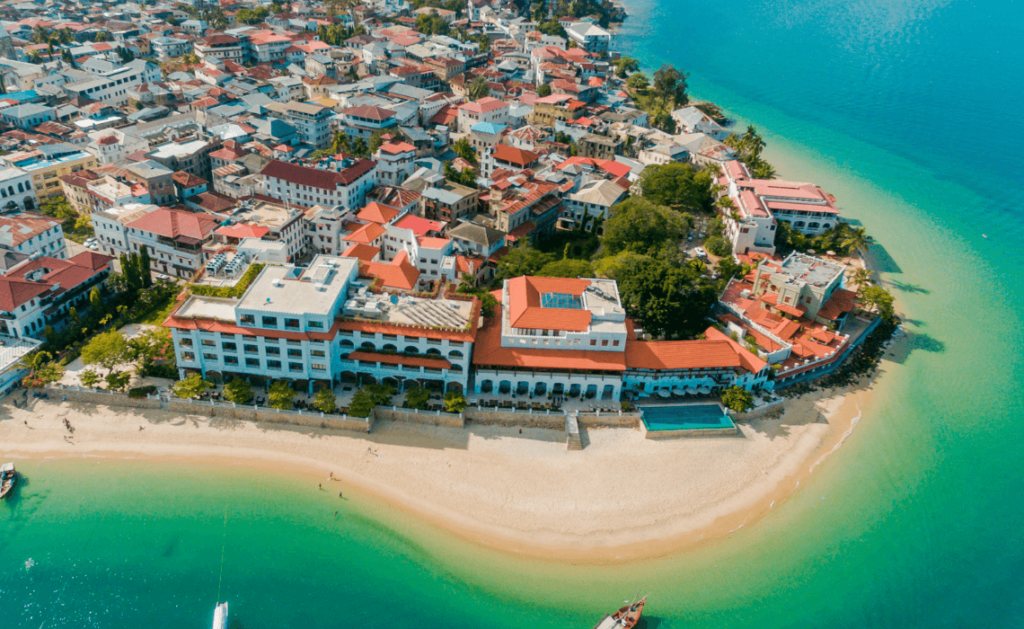The Revolutionary Government of Zanzibar has assured the international travelers and relevant stakeholders that the semi-autonomous islands of Zanzibar remain open for business and there have been no cases of the Marburg virus in the region.
“We are ready to welcome travelers from around the world. As we head towards the ‘Green Season’, the Zanzibar archipelago has yet to record a single case of the Marburg virus first detected in March 2023, in the north-west Kagera region of mainland Tanzania,” said a statement.
Since the lifting of Covid-19 restrictions, the archipelago has seen an influx of visitors from the United States of America and the Middle East as well as those from its core European markets. It is anticipated this trend will continue in the coming months and throughout summer.
While the US Centers for Disease Control and Prevention has recommended travelers avoid contact with sick individuals and monitor any potential symptoms, it has not advised against travelling to Tanzania and Zanzibar.

Furthermore, it is important to understand that the Islands of Zanzibar are located in the warm waters of the Indian Ocean, separated by at least 1,588kms of ocean and land between the islands and the Kagera region on the mainland. As such, it poses no risk of infection, it said.
“While the United Republic of Tanzania and the Revolutionary Government of Zanzibar are monitoring the situation closely, there is absolutely no cause for alarm,” said Tourism Minister Simai M Said.
“Given that Covid-19 is still fresh in our minds, we understand that people are cautious when learning of new infections. However, such fears are often unfounded, such is the case now. Tanzania is adhering to the World Health Organisation (WHO) standards and people have no reason to worry.
“Members of the international business community and those visiting our beautiful region and islands can rest assured that it is very much business as usual, and their health is in no way at risk from this virus. In the next few weeks Tanzania should be free from the virus.”
Findings by the United Republic of Tanzania’s Ministry of Health in collaboration with WHO show that as of the 4th of April 2023, the total number of remaining Marburg virus cases in the Kagera region was three, of which only two remain in isolation after one person was discharged on the 5th of April 2023.
“This is further evidence that the spread of the virus has been halted. As we prepare to welcome our annual influx of visitors from the Northern Hemisphere and the Middle East, they can be safe in the knowledge that the virus is contained and presents no threat to them or the citizens of Zanzibar,” comments Said.
Meanwhile, The United Republic of Tanzania has deployed rapid response teams for the purposes of contact tracing and monitoring risk communication activities, measures that are proving highly successful with limiting the spread of the virus in the Kagera region.
Zanzibar is set for a bumper tourist season, with the country already welcoming 65,430 international visitors in February – an increase of 39.2% on the 46,995 visitors recorded in February 2022.
Excerpts of an interview with Tourism Minister:
In terms of revenue generation and job creation, how is the tourism industry fairing, post-pandemic?
Tourism still remains the main contributing sector to Zanzibar’s economy, contributing 29.2% and over 80% Foreign Earning. Zanzibar has fully recovered quicker than expected and we have surpassed 538, 000 visitors of pre-covid to over 540,000 post Covid. We have seen an increase in visitors for February 2023 by 39% compared to February last year. Increase of investments by has also translated to job creations numbers. . For instance, Emerald Zanzibar a new hotel project opened this year, recruiting over 300 staff of which 90% are locals.
What measures have been put in place to contain the spread of MVD and ensure safety of travelers?
The situation has been contained by both Governments, by immediately deploying a first response team to Kagera Region, which is more than 1000km away from Zanzibar and Mainland Dar es Salaam. All patients were treated according to WHO guidelines. From the 8 who have been infected, only 2 under observation.
With lessons from the Covid-19 pandemic, how has the Zanzibar built resilience for its tourism industry?
During the Covid 19 pandemic, Zanzibar has created Standard Operating Procedures (SOPs) for all tourism operators to ensure they are adhering to international health and safety standards. Market Dependency on our traditional markets and products was also a lesson learnt and our promotional strategy was to maintain the existing traditional markets Western Europe and diversify targeting new emerging markets and products such as Eastern Europe and GCC countries.
Various financial programs in partnership with developing partners to support the tourism value chain were also introduced. And off course, us not closing our borders during the pandemic also meant that we did not have to start from the beginning but rather to strengthen existing efforts and introducing health and safety measures in accordance to WHO requirements. A national Covid-19 vaccine campaign was launched which saw a large number of the population vaccinated.
With an increasingly competitive landscape and increasing travel destinations, how is Zanzibar positioning itself to remain a destination of choice?
Rebranding efforts are underway which will highlight our unique characteristics such as cultural heritage in addition to the exotic white sandy beaches, to use technology to advance existing tourism products and services. Invest in our human capital to meet the needs of the industry and ensure that tourism is benefiting all stakeholders, particularly the communities.
Zanzibar being composed of 2 main islands and over 50 islets, means that our resources are limited and it is essential to promote sustainable green tourism practices, empower local communities by promoting locally made products. In the past two years Zanzibar has won a number of international accolades including the first preferred beach destination in Africa. A number of unique 5 star hotels have also won prestigious awards and this further highlights the uniqueness of Zanzibar as a destination.
The travel and tourism industry has bounced back, but with the current global economic pressures and shocks, will this trend continue?
Yes indeed. Tourism accounts for one out of every 11 jobs globally although jobs were lost during the pandemic, the opening of new investments and projects will translate to job creation. Since the bouncing back from the pandemic of Covid-19, the current global performance of the sector is looking positive and expected to grow.
Particularly now that we have all learnt from the pandemic, necessary changes are definitely necessary to ensure its growth. Now health and safety measures have become a priority for all visitors. Governments worldwide have adopted many changes. As you have seen with Zanzibar we have surpassed pre-covid numbers.
A study by The World Travel and Tourism Council that looked at the impact of tourism had in 2022 found that ‘Travel & Tourism GDP is set to grow on average by 5.8% annually between 2022 and 2032, outpacing the growth of the overall economy (2.7% per year).
Their research showed that Travel & Tourism GDP could return to 2019 levels by the end of 2023. What is more, the sector is expected to create nearly 126 million new jobs within the next decade.’ Therefore the trend is set to continue and growth is on the horizon.
What are your revenue projections for the tourism industry in 2023 and what will drive its growth?
Post Covid-19 has also showed the increase need of visitors to travel after lockdowns, others are looking to work remotely while tucked away on an exotic island like Zanzibar. We have seen an increase in demand for these type of nomad travelers. In addition to the positive indicators from various researches as well as the performance of our own tourism sector in Zanzibar, growth will be driven by the investment interests as well as the diversification of our current products.
We have opened up Pemba for investment and with the current infrastructure projects that have already taken off, such as the construction of an international airport in Pemba and over. Generally we are looking to welcome over 850,000 tourists by 2025, with tourism earnings estimated to increase by an approximate average of between 10-20 percent per annum, this is an estimation based on previous and current performances as well as new projects which are in the pipeline.
Source: TradeArabia News Service







